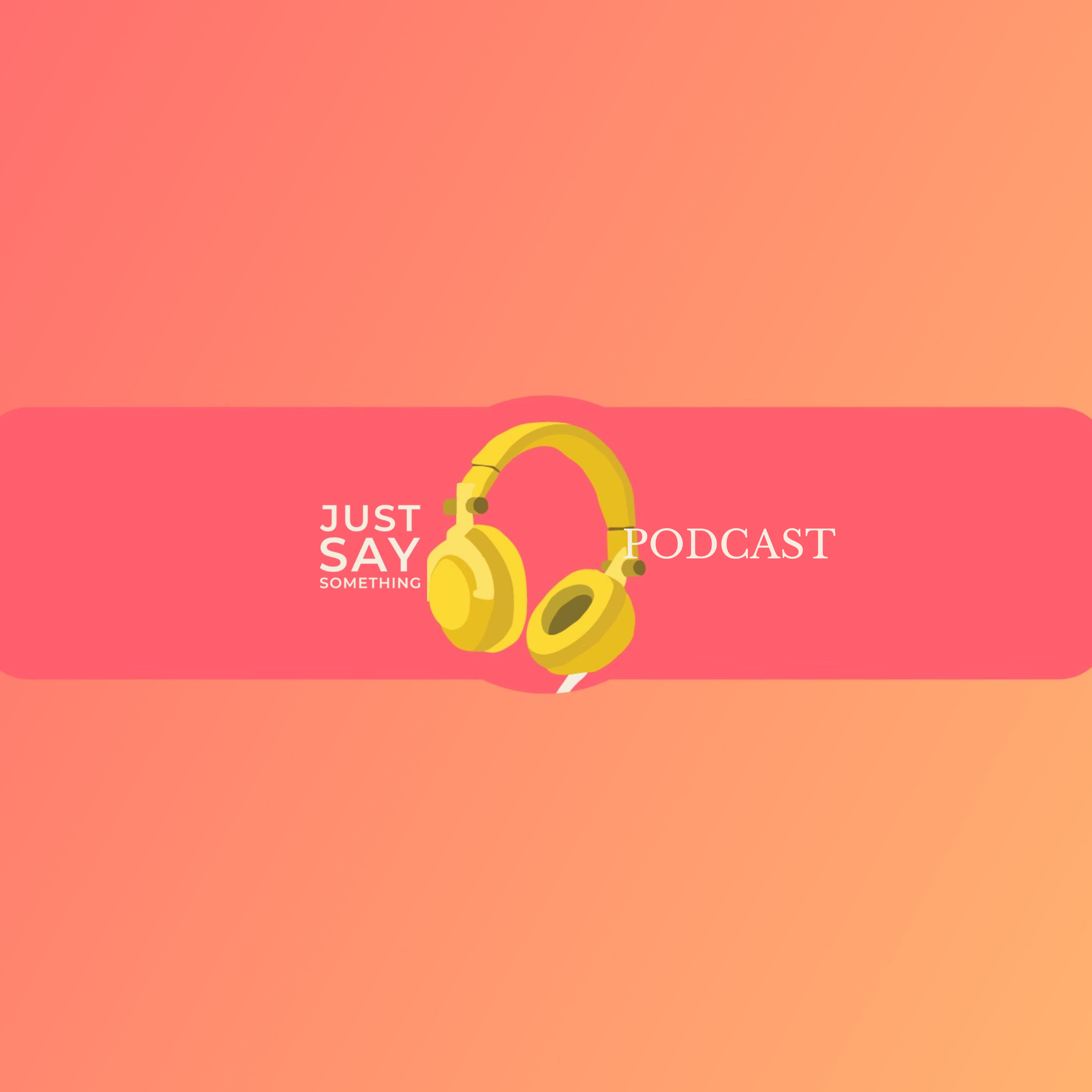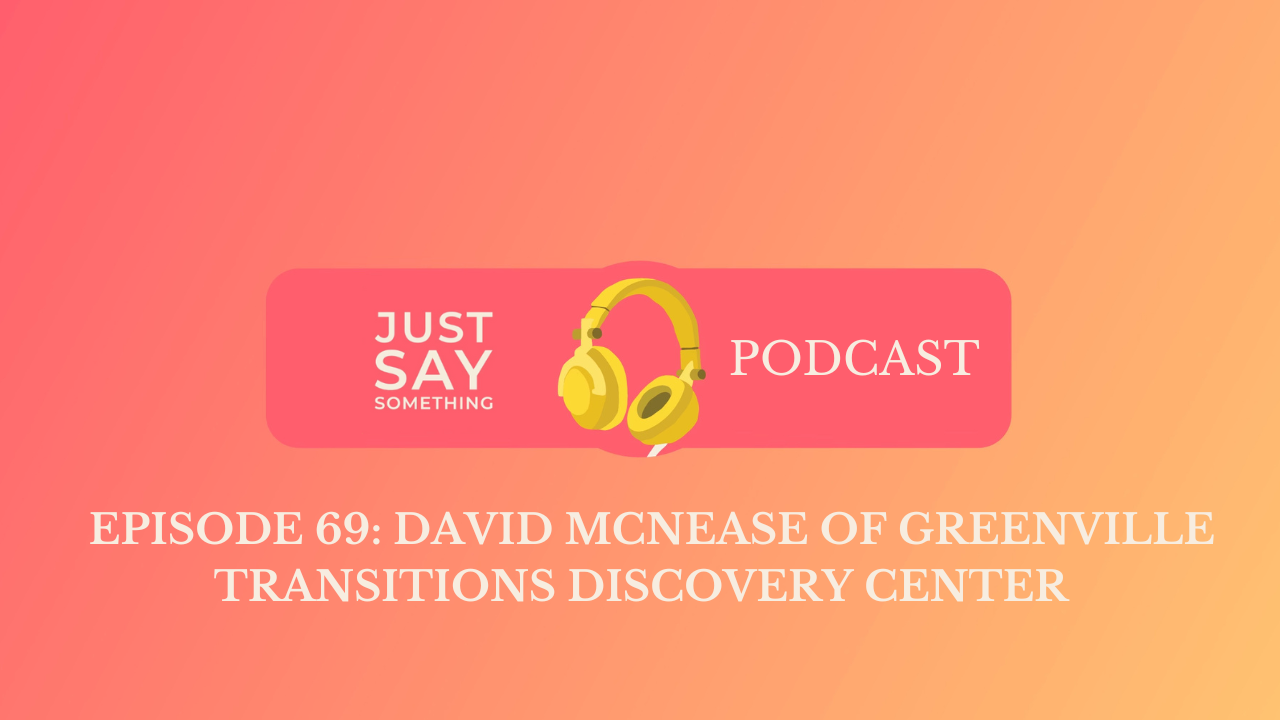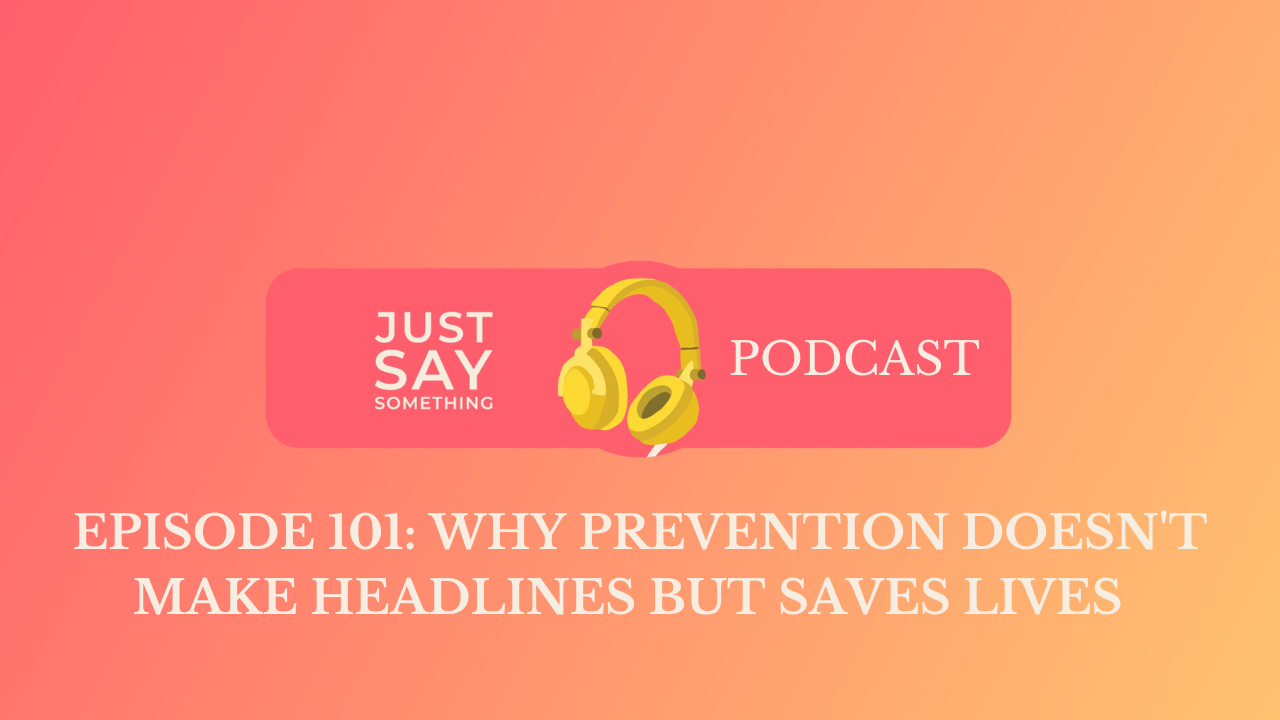Episode Transcript
[00:00:00] Foreign hello everyone and welcome back to another episode of Just say Something podcast. I'm your host Philip Clark and today I'm here to talk to you about something incredibly important. It's National Drug and Alcohol Facts Week.
[00:00:25] Before we dive in, I want to remind you that if you enjoy our podcast, please subscribe, leave a review and or share it with someone who might benefit from this information.
[00:00:40] Your support helps us reach more people with these very important conversations.
[00:00:48] Now let's talk about National Drug and Alcohol Facts Week this year.
[00:00:56] It's happening from March 17th through the 23rd and it represents a critical opportunity for all of us who care about the well being of young people in our communities.
[00:01:11] For those who aren't familiar with ndafw, I don't know how that acronyms how you say that, but it's an annual health observance week that was created by the National Institute of Drug Abuse, or nida, and is supported by partners like the dea.
[00:01:33] The core mission is simple but very powerful and it's to inspire honest, science based dialogue about drug and alcohol use among our youth.
[00:01:48] Sounds familiar, doesn't it?
[00:01:51] What makes this week special is its focus on facts rather than fear. It's about cutting through myths, misconceptions, peer pressure with solid scientific scientific information that helps young people make informed decisions about their health in their future.
[00:02:17] I've seen firsthand how quality education and open conversations can make a real difference in our young people's lives.
[00:02:27] That's why I support and Just say something supports what National Drug and Alcohol Fact Suite represents.
[00:02:37] This year theme continues to emphasize the importance of scientific literacy when it comes to understanding substance use and addiction.
[00:02:49] Let me tell you, in today's world of social media influence and misinformation, this approach has never been more important.
[00:03:00] So National Drug and Alcohol Facts Week. The program isn't just a one size fits all approach. Instead, it offers educators, prevention specialists, counselors, community leaders the ability to customize their approach based on their specific community needs.
[00:03:23] Maybe in your particular community, vaping is a growing concern, or perhaps it's prescription drug misuse or underage drinking.
[00:03:35] So part of what this week offers us is that it provides resources to address these specific issues with age appropriate science based information.
[00:03:49] So let me walk you through what National Drug and Alcohol Facts Week is all about and why I believe it's such an effective approach to prevention.
[00:04:01] First, this week is built on the foundation of scientific understanding.
[00:04:08] We're not really telling kids don't do drugs, we're helping them understand how substances affect their developing brains, how addiction works as a medical condition and what the real short and long term risk are.
[00:04:27] So many of you know Stacy Ashmore on our team. He's in schools each week educating students about the dangers of smoking and vaping. It's so important that kids really understand what can happen.
[00:04:45] Second, it promotes dialogue. This isn't about lectures or scare tactics. It's about creating a safe place for our young people to ask questions, to express their concerns and to engage critically with the information they're receiving.
[00:05:08] Third, it focuses on building essential life skills beyond just information.
[00:05:15] At National Drug and Alcohol Facts Week, programming emphasizes healthy coping mechanisms, resistance skills and decision making framework that benefit young people in all aspects of their lives.
[00:05:32] And finally, it connects communities.
[00:05:35] When schools, families, healthcare providers and community organizers all participate, it creates a consistent message and a network of support from our youth.
[00:05:49] Some people ask me like Phil, what does this kind of, does this kind of education really work? Aren't kids going to experiment no matter what we tell them?
[00:06:00] And you know, that's a fair question. Yes, adolescence is a time of exploration and risk taking.
[00:06:08] That's part of normal development. But research consistently shows that when young people have accurate and honest information and a strong support system, they make better choices. A teenager who understands how alcohol affects their still developing brain may think twice before binge drinking. A middle schooler who knows the real facts about prescription drug misuse might be less likely to share medications with friends.
[00:06:45] Remember, knowledge is power.
[00:06:50] What can you do to participate in National Drug and Alcohol Facts Week? I'm glad you asked. If you're an educator, consider hosting a school wide event. This could be a panel discussion or a Q and a session with local help health professionals. If you're a parent, use this week as an opportunity to start or continue conversations about substance use with your children.
[00:07:22] Community organizations can host educational workshops, screen relevant documentaries, or coordinate with local health care providers for special events.
[00:07:35] And for anyone who works with youth, whether you're a coach, mentor or any capacity, being informed and ready to have honest, non judgmental conversations can make a tremendous difference.
[00:07:53] And you can do this all year long, not just this particular week. Remember, our goal isn't to preach or scare. It's to educate, support and empower the next generation to live their healthiest lives.
[00:08:12] And we always remember that the seven steps that we try to teach our families that participate in our classes is 1. Take a deep breath.
[00:08:23] 2. Just start talking. 3.
[00:08:29] Try not to be perfect. Just speak from your heart.
[00:08:32] 4.
[00:08:34] Stop and listen.
[00:08:37] 5. Validate the other point of view.
[00:08:42] 6.
[00:08:43] Give your child a hug, a long hug, and 7, smile. It's that simple. You don't know where to start.
[00:08:54] Just say something.
[00:08:57] So that's all for today's episode. I want to thank you for tuning in. This is Phil Clark with Just say Something podcast, and we'll see you next week. Have a great one.


